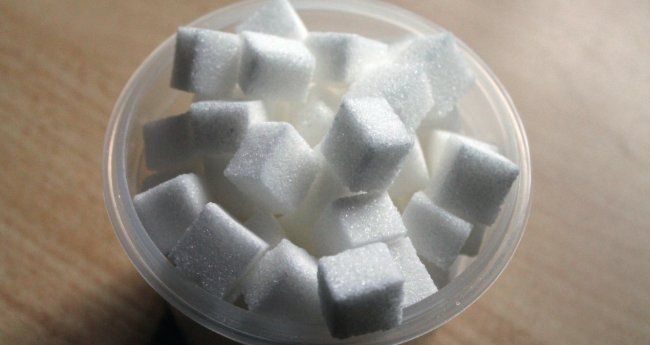Sugar has a complex role in the body, and the body has an equally complex system for monitoring and regulating its use.

Sugar has received a lot of press recently and the press is not good. While the body needs some sugar to fuel its biochemical processes, the range of blood sugar levels the body requires is quite narrow. The endocrine system is responsible for regulating the amount of sugar from the food we eat and into the bloodstream. When too much sugar is consumed, or the body’s ability to regulate blood sugar levels is compromised, serious medical problems can result. Here are five facts to understand about sugar and the endocrine system:
Dietary Sugar
Although the body needs sugar, it does not need added sugar. Rather, the body can extract the sugars it needs from many sources of nutrition, such as legumes, starchy vegetables, fruits, and grains. Endocrinologists recommend that sugar only make up 10% of your total daily energy intake.
When carbohydrates are eaten, they are broken down into simple sugars by enzymes secreted by the pancreas. These simple sugars, including glucose, fructose, and galactose, are transported to the liver. Here, they can be stored as glycogen, used to produce fat cells, or released into the bloodstream for energy. Glucose’s role in producing fat cells is one reason sugar intake is usually controlled as part of any personalized weight loss program.
Insulin
Insulin is a hormone produced by the pancreas. When the pancreas senses the glucose levels in the blood have risen, such as after a meal, it secretes insulin to regulate sugar levels.
The liver responds to insulin by absorbing glucose from the blood. As discussed above, the liver can convert this glucose into glycogen for storage in the liver or use the glucose to produce cholesterol or fatty acids that are stored in fat cells.
When the pancreas detects a drop in glucose levels in the bloodstream, the pancreas stops secreting insulin. This signals the liver to stop absorbing glucose from the blood.
Glucagon
Glucagon is a hormone that is also produced by the pancreas. When the pancreas senses the glucose levels in the blood have fallen too low, the pancreas secretes glucagon. This drop in glucose levels can occur while exercising, during sleep, or other times when the body is using glucose from the bloodstream to fuel its processes but is not taking in glucose through digestion.
Glucagon has the opposite effect of insulin. It signals the liver to convert glycogen stored in the liver back into glucose. This glucose is released by the liver into the bloodstream. The increase in glucose level in the bloodstream is sensed by the pancreas, which ceases the production of glucagon.
Diabetes
There are two disorders of the endocrine system that affect blood sugar: diabetes and hypoglycemia.
Diabetes takes two different forms. Type I diabetes occurs when the immune system attacks the insulin-producing cells of the pancreas and destroys its ability to produce and secrete insulin. As a result, the liver is not signaled to absorb glucose from the blood even when glucose levels rise. The increase in blood sugar levels can cause many health problems. Symptoms of Type I diabetes can include:
- Frequent urination
- Increase in hunger and thirst
- Blurry vision
- Numbness or tingling in extremities
- Slow healing
- Endocrinologists typically diagnose Type I diabetes in children and young adults.
Type II diabetes occurs when the muscle, fat, and liver cells develop a resistance to insulin. As a result, the cells miss the signal to absorb glucose from the bloodstream and glucose levels rise. The pancreas increases the amount of insulin produced to attempt to get a signal through to the cells, but the insulin-producing cells eventually “burn out” from overproduction. Symptoms of Type II diabetes are similar to those of Type I diabetes, but endocrinologists typically diagnose Type II diabetes in middle-aged and older adults.
Hypoglycemia
Hypoglycemia is a condition in which glucose levels drop below the normal level. Hypoglycemia is usually not a disease in itself, like diabetes. Rather, hypoglycemia occurs as a symptom of other health problems. For example, endocrinologists often find hypoglycemia in diabetes patients whose dosage of insulin or other diabetes medications are too high. Hypoglycemia can also result from diseases of the pancreas, liver, or kidneys, as well as eating disorders.
Sugar has a complex role in the body, and the body has an equally complex system for monitoring and regulating its use. For more information on sugars and your endocrine system, rely on Philip Rabito today.

